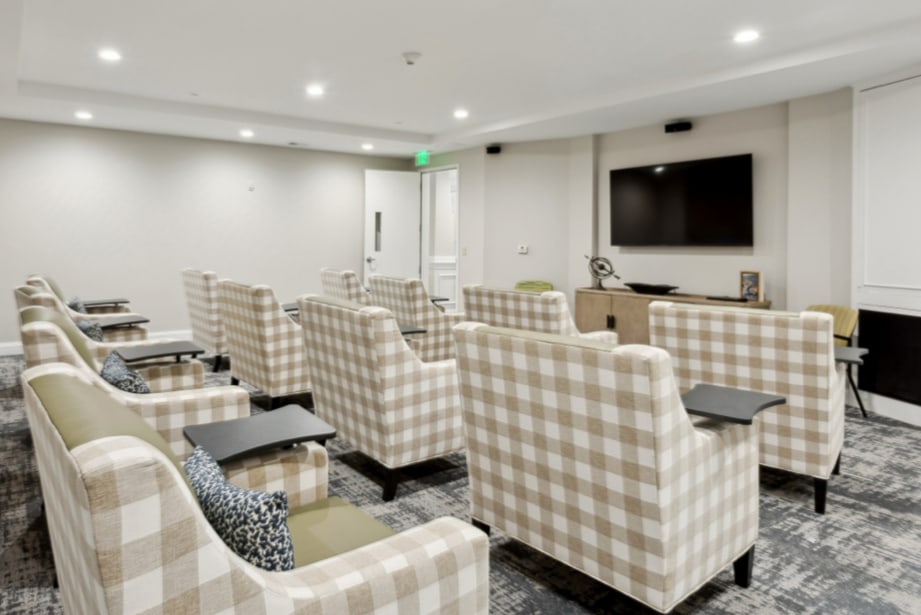Choosing the right living arrangement for yourself or a loved one can be one of life’s most important decisions. Assisted living communities offer a unique blend of independence and support, but understanding who truly benefits from this environment can help you make the best choice for your situation.
Assisted living serves as a bridge between completely independent living and full-time intensive care. These communities welcome residents who maintain their independence while benefiting from assistance with daily activities, creating an environment where people can thrive rather than simply survive.
Understanding the Assisted Living Lifestyle
Assisted living communities provide long-term care for individuals who value their independence but recognize they need some support with daily tasks. Rather than focusing on limitations, these environments celebrate what residents can do while offering help where needed.
Residents typically live in private or semi-private rooms within a community. Professional care staff provide assistance with activities like bathing, dressing, meal preparation, and medication management, allowing residents to focus their energy on the activities they enjoy most.
The beauty of assisted living lies in its ability to reduce daily worries about household maintenance and safety while promoting social connections and meaningful activities. This supportive atmosphere helps residents maintain their dignity and autonomy while ensuring their well-being.
Who Thrives in Assisted Living Communities?
The ideal assisted living resident isn’t defined by age alone. Instead, certain characteristics and needs indicate whether someone will flourish in this environment:
Requires Support with Daily Activities
Residents who benefit most from assisted living are those who remain mobile and relatively self-sufficient but need help with specific daily tasks. This might include assistance with bathing, dressing, grooming, or medication management. The key is maintaining independence in some areas while receiving support in others.
Manages Chronic Health Conditions
Many assisted living residents live with ongoing health concerns that require regular monitoring but don’t need intensive medical intervention. Conditions like diabetes, arthritis, or heart conditions can be well-managed in assisted living with proper medication oversight and health monitoring.
Values Safety & Security
If safety concerns have become an issue—such as increased fall risk or difficulty managing household tasks—assisted living provides peace of mind. These communities implement safety measures throughout their facilities while maintaining a home-like atmosphere.
Enjoys Social Connection
Successful assisted living residents appreciate the opportunity to engage with others. Community activities, shared dining experiences, and group outings provide natural opportunities for friendship and social engagement, which research shows is very important for healthy aging.
Embraces Community Living
Prospective residents should feel comfortable with communal living aspects, including shared spaces, community guidelines, and group activities. While residents maintain privacy in their own rooms, the community atmosphere is central to the assisted living experience.
When Assisted Living May Not Be the Right Fit
Recognizing when assisted living isn’t suitable is equally important. Alternative care options might be more appropriate for individuals who:
- Need intensive medical care: Those requiring constant medical supervision or frequent emergency interventions may need nursing home care or other medical facilities.
- Experience significant cognitive decline: Residents with advancing dementia or Alzheimer’s disease often benefit more from specialized memory care communities designed for their evolving needs.
- Require extensive mobility assistance: Individuals who need help with basic mobility or are largely bedbound may need more intensive care than assisted living typically provides.
- Cannot adapt to community living: Some people prefer complete solitude or have difficulty following community guidelines, making independent living or other arrangements more suitable.
The Support Services That Make the Difference

Assisted living communities provide comprehensive services designed to enhance quality of life while promoting independence.
- Personal Care Services: Professional staff assist with grooming, bathing, dressing, and medication management based on individual needs.
- 24/7 Care Availability: Staff are available around the clock to ensure help is there when needed, providing security and peace of mind.
- Transportation Services: Scheduled transportation for medical appointments, errands, and community outings keeps residents connected to the broader community.
- Engaging Activities: From fitness classes to arts and crafts, social events to educational programs, activities cater to diverse interests while fostering social connections.
- Home-like Environment: Private living spaces combined with attractive common areas create a comfortable, welcoming atmosphere that feels like home.
Making the Right Choice for Your Future
Assisted living offers an empowering approach to aging, allowing residents to maintain their independence while receiving the support they need. The key lies in honest assessment of current needs and future considerations.
Consider assisted living if you or your loved one values independence but would benefit from assistance with daily activities, enjoys social interaction, and feels comfortable in a community setting. This environment celebrates what residents can do while providing support where needed.
The decision to move to assisted living represents a positive step toward continued independence and enhanced quality of life. With the right community match, residents often discover new friendships, interests, and opportunities they might not have found living alone.
Ready to explore whether assisted living might be right for you or your loved one? Schedule a tour to experience how Somerby Peachtree City blends independence with supportive care, creating environments where residents truly thrive.










